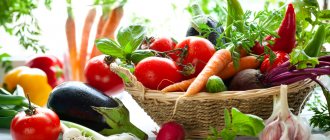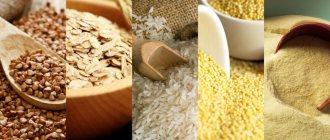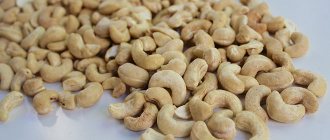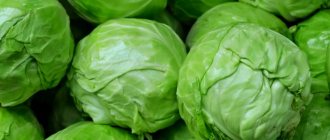Useful properties of carrots
Thanks to its rich chemical composition, carrots have many beneficial effects:
- strengthens and normalizes the functioning of the cardiovascular system;
- strengthens bone tissue;
- improves the condition of the immune system;
- stimulates the functions of the gastrointestinal tract;
- prevents the development of cancer;
- maintains visual acuity;
- maintains healthy teeth and gums;
- regulates sugar and cholesterol levels;
- improves the condition of nails, hair and skin;
- accelerates regenerative processes;
- eliminates diarrhea;
- prevents inflammation of the prostate gland in men;
- has a choleretic effect, removes toxins;
- promotes the synthesis of polyunsaturated fatty acids;
- used for the prevention of hypo- and vitamin deficiencies;
- has a beneficial effect on the health of pregnant women: it reduces the symptoms of toxicosis, and is useful for the formation of the fetus.
Since carrots are a low-calorie product (35 kcal per 100 g), they are often included in the diet of people losing excess weight.
Carrots during breastfeeding
Carrots are not just a tasty vegetable for a nursing mother, but also healthy. Firstly, it is worth noting that this earthy beauty is one of our “native” vegetables, that is, it has been growing on our territory since time immemorial and is included in the daily diet of almost every family. Secondly, this root vegetable is rich in vitamins, micro- and macroelements, which help improve health and improve immunity.
Useful composition of carrots and calorie content
Carrots are a low-calorie food product, containing about 35 kcal per 100 grams. The calorie content of boiled vegetables is slightly lower. The nutritional value of carrots is determined by its composition.
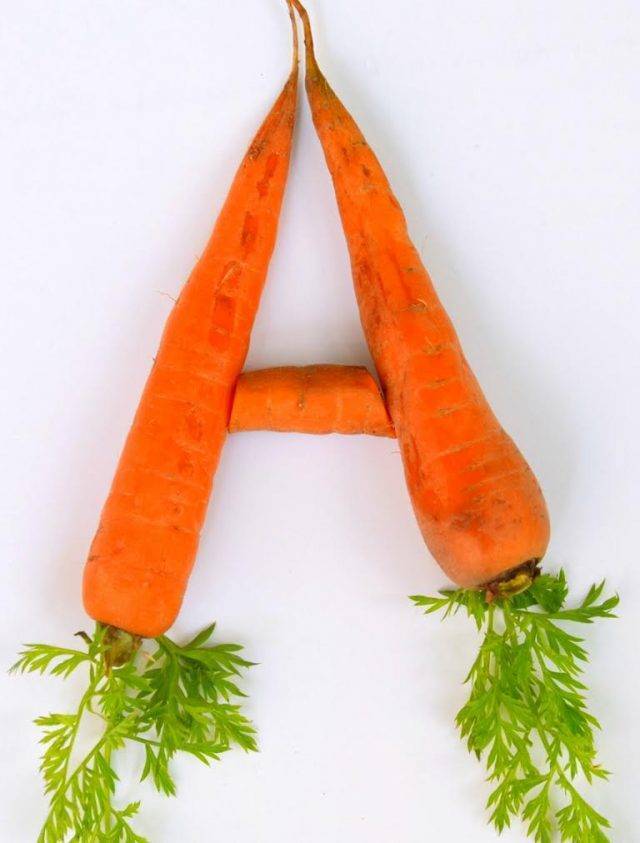
Carrots are rich in vitamins, micro- and macroelements
Table: chemical composition of the vegetable, calorie content (per 100 grams)
| Water | 88 g |
| Squirrels | 1.2 g |
| Fats | 0.1 g |
| Carbohydrates | 9.1 g (including mono- and disaccharides - 7 g) |
| Dietary fiber (fiber) | 1.2 g |
| Ash | 1 g |
| Pectins | 0.6 g |
| Organic acids | 0.2 g |
| Calorie content | about 39 kcal |
Vitamins in carrots
Carrots contain:
- B vitamins: B1, B2, B6;
- vitamin E;
- vitamin PP;
- vitamin K;
- pantothenic (B5) acid;
- ascorbic (C) acid;
- Beta-carotene is a yellow-orange pigment that is converted into retinol (vitamin A) in the human body.
Table: vitamin content in carrots (per 100 grams)
| Vitamin | Contents per 100 grams |
| Vitamin A (beta-carotene) | 9 mg |
| Vitamin B1 (thiamine) | 0.06 mg |
| Vitamin B2 (riboflavin) | 0.07 mg |
| Niacin (vitamin B3 or vitamin PP) | 1 mg |
| Vitamin B8 (inositol) | 29 mg |
| Vitamin B9 (folic acid) | 8 mcg |
| Vitamin C (ascorbic acid) | 5 mg |
| Vitamin E (tocopherol) | 0.6 mg |
Microelements and macroelements in carrots
Thanks to an almost ideal set of micro- and macroelements, carrots are considered one of the healthiest vegetables that can be consumed throughout the year. In addition, carrots contain various essential oils, which give the root vegetable a unique pleasant taste and aroma.

It is very useful for a nursing mother to include carrots in her diet.
Table: content of micro- and macroelements in carrots (per 100 grams)
| Microelements | Element | Contents per 100 grams |
| Iron | 0.7 mg | |
| Zinc | 0.4 mg | |
| Manganese | 0.2 mg | |
| Copper | 80 mcg | |
| Fluorine | 50 mcg | |
| Molybdenum | 20 mcg | |
| Iodine | 5 mcg | |
| Cobalt | 2 mcg | |
| Macronutrients | Potassium | 200 mg |
| Phosphorus | 55 mg | |
| Calcium | 51 mg | |
| Magnesium | 38 mg | |
| Sodium | 21 mg |
Benefits for the body of a nursing mother
Thanks to its rich composition, carrots have a number of beneficial properties, which are especially necessary for the body of a nursing mother:
- helps in the treatment and prevention of diseases of the cardiovascular system;
- increases hemoglobin levels and relieves anemia;
- improves kidney and liver function;
- improves the condition of skin, hair and nails;
- normalizes the acidity of gastric juice, improves the overall functioning of the gastrointestinal tract;
- has the following effects: wound healing;
- pain reliever;
- anti-inflammatory;
- antiseptic;
- anthelmintic;
- choleretic;
- expectorant;
- antisclerotic;
Video: benefits of carrots
Possible harm from carrots for a child
Despite the very useful composition of carrots, even such a harmless root vegetable can have a negative effect on the baby’s still fragile body. It is believed that orange and red fruits and vegetables can be strong allergens for a child. Carrots can also cause an allergic reaction or digestive upset in a baby. After introducing carrots, a nursing mother should monitor her baby for 2-3 days. During this time, a rash or peeling may appear on the cheeks, joint bends, and even throughout the body. Diaper rash, stool disorders, and frequent regurgitation may also occur. In this case, carrots should be excluded from the diet for at least one to two months, and then try introducing them again, starting with a small piece of boiled root vegetable.
Carrots can cause allergies in babies
It is also necessary to pay attention to the fact that it is not the carrot itself that can cause a food allergy in a child, but the conditions in which it was grown and what nitrates and fertilizers the root crop was “fed”
Carrots during lactation
The need to consume carrots during breastfeeding is due to its beneficial qualities:
- stimulates milk production;
- improves its composition, gives a pleasant aroma and taste that attracts the child;
- strengthens blood vessels and heart muscle;
- prevents the development of anemia in the baby;
- strengthens the bone skeleton of the child and mother;
- normalizes hemoglobin levels;
- improves the condition of hair, skin and teeth of a nursing woman;
- regulates weight.
When introducing carrots into a nursing woman’s diet, be sure to monitor the baby’s reaction: if he experiences side effects, postpone eating the vegetable for about a month.
Vegetables and fruits while breastfeeding
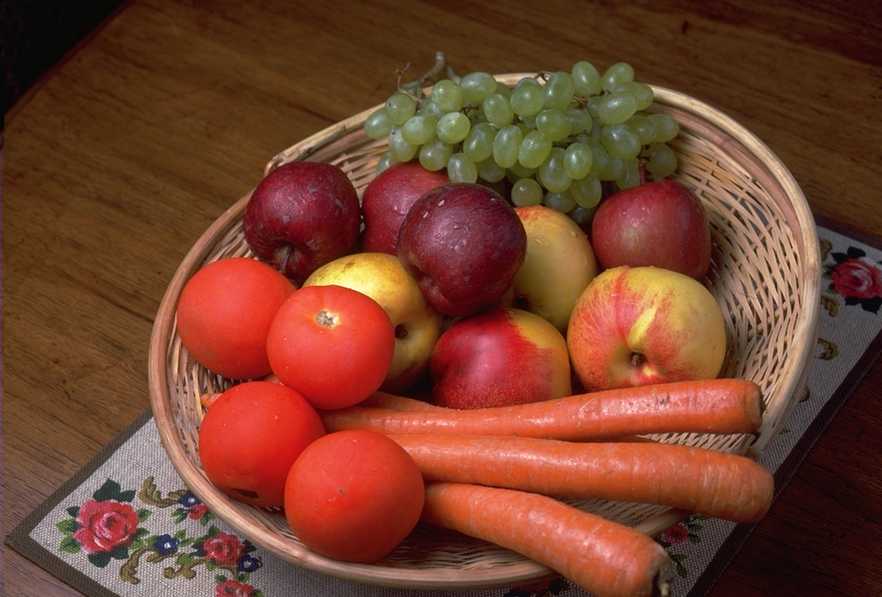
Most pediatricians are of the opinion that vegetables and fruits are most suitable as the first complementary foods for a baby. This is why a woman can eat vegetables and fruits, although not all of them, since many foods can put a strong strain on the child’s digestive system.
After giving birth, it is not recommended to switch to an exclusively plant-based diet for weight loss. If you eat only vegetables and fruits, breast milk will not be a complete source of nutrition for the baby. However, a diet based on vegetables and fruits, according to researchers in this area, will teach a child to eat properly in the future.
A new vegetable or fruit can be introduced no more than once every three days. During these three days, the mother should monitor the reaction of the child’s body - whether there is a rash, intestinal colic, constipation or diarrhea.
Can a nursing mother eat carrots?
The vegetable is not on the list of foods prohibited during breastfeeding and has a lot of useful properties. Therefore, its use during lactation is not only acceptable, but also recommended.
In any form
The vegetable is introduced into the diet of a nursing woman in stages to avoid a negative reaction in the baby. It’s better to start with a small piece of boiled root vegetable for breakfast. If the child’s condition remains normal during the day, the amount consumed is gradually increased to 1-2 carrots per day. At first, you are allowed to eat only boiled or baked vegetables, and only after 5-6 months - raw.
Important! If you eat the root vegetable several times a week, its daily intake will be from 100 to 150 g.
It is undesirable to include several new components in the mother’s menu at once, since it will be difficult to establish the exact cause of the allergy. Carrots during breastfeeding should be of high quality, without nitrates. It’s good if it is grown on your own plot. If this is not possible, it is better to buy vegetables from trusted suppliers or at farmers' markets.
What to eat to enhance lactation?
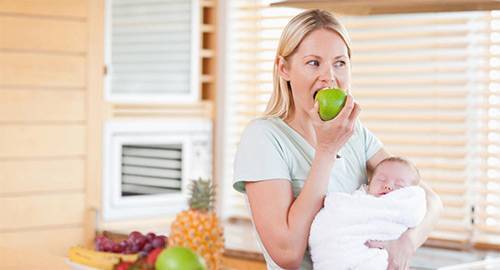
The amount of milk produced depends on the measures taken by the mother to maintain and increase lactation. To do this, you need to regularly put the baby to the breast, choose the right position for feeding, monitor the condition of the breasts and nipples, wear special bras, and give breastfeeding to the baby at his request, especially at night.
An increased drinking regime is very important for lactation; warm drinks are especially good at stimulating the production of breast milk. A number of foods that are allowed during breastfeeding can also contribute to this process.
You can improve lactation with:
- lean meat, chicken, turkey and rabbit are suitable;
- broths and soups cooked with the same lean meat;
- some cereals (rolled buckwheat);
- a small amount of nuts (walnuts);
- herbal teas specially designed for lactation;
- infusions of cumin and fennel;
- feta cheese;
- cottage cheese;
- bread with the addition of bran and caraway seeds;
- carrots;
- ginger and tea with it;
- gooseberries, white and red currants.
Products allowed for breastfeeding women should not be very hot or cold. This can be harmful; it is better to take all foods slightly cooled or slightly warmed up.
Consumption of carrots depending on the feeding period
The daily amount of vegetables consumed depends on the age of the baby.
In the first month
During the first time after birth, the baby’s digestive system is just beginning to get used to food, so it is important for a nursing mother to correctly prepare a diet. It is better not to consume carrots for 2-3 weeks after birth, but to start introducing them from 4 weeks.
In the second
Is it possible to have raw carrots during this period? No, in the absence of side effects, it is permissible to consume the vegetable only in boiled or baked form, but the daily dose should not exceed 150 g.
On the third and fourth
Provided that the baby is absolutely healthy, a nursing woman can gradually return to her normal diet. It is important that the interval between adding each new product is at least 3 days.
Eating baked or boiled root vegetables is acceptable 3-4 times a week with a daily intake of 150 g.
Important! For breastfeeding, carrot juice diluted with water in a 1:1 ratio is allowed. At first, its daily dosage should not exceed 2 sips. Gradually this number increases.
Until the 5th month of breastfeeding, only heat-treated vegetables remain in the diet.
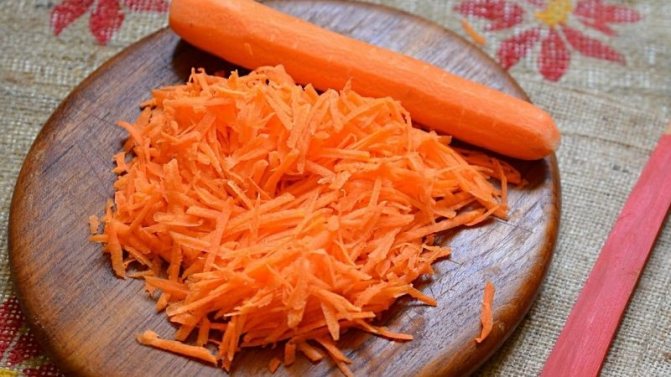
Rules for preparing soups while breastfeeding
Broths are very important during lactation. But in order to reduce possible harm and increase their benefits, the following rules must be followed:
- use broths from the first days after the birth of your child;
- observe the temperature regime, food should not be cold or too hot;
- for the first 1 - 1.5 weeks you need to eat vegetable broths;
carrots are administered with caution 2 weeks after birth;
- Spices and seasonings should not be added to broths; it is better to avoid mayonnaise;
- Also, an allergic reaction of the body can be caused by garlic and onions. They are approved for use 5-6 months after birth;
- use sour cream and parsley as seasoning, which has become an ideal addition to the diet during breastfeeding.
Rules for introducing carrots into the diet of a nursing mother
When consuming vegetables during breastfeeding, it is important to strictly adhere to the recommendations related to the start of intake, daily portions, methods of preparation and compatibility with other products.
How often to use and in what form
The frequency of eating carrots during breastfeeding is 3-4 times every 7 days. The vegetable must be boiled or baked. In this form, the bulk of vitamins and nutrients remain, reducing the risk of negative effects of the root vegetable on the baby’s digestive system.
Carrot dishes for nursing
The vegetable can be eaten not only in its pure form, but also as part of various dishes, for example:
- mashed potatoes;
- salad of boiled, grated vegetables;
- casserole;
- steamed vegetable cutlets;
- vegetable puree soups;
- lean stewed meat.
Dosage
When introduced into the diet, the first portion of carrots should not exceed 30 g. In the future, if the product does not cause adverse reactions in the baby, the dosage is increased to 150 g per day. Permissible frequency of use is up to 3 times a week. The daily dose of juice diluted with clean water to a concentration of 50% is 200 ml.
Cooking methods
During lactation, it is recommended to eat carrots as part of various dishes.
Important! When cooking, you should not use garlic and hot seasonings, as they can negatively affect the quality of breast milk and the health of the baby.
Cream soup with carrots and potatoes
Components:
- 2 carrots;
- 3 potatoes;
- 1 onion;
- 600 ml chicken or vegetable broth;
- 30 g butter;
- salt.
Preparation:
- Cut the washed and peeled vegetables into small pieces.
- Melt the butter and simmer the onion in it for a while.
- Place pieces of vegetables into the broth and cook for 10–15 minutes.
- Add the onion seasoning to the soup and simmer for another 3-4 minutes.
- After cooling, grind everything in a blender.
Vegetable cream soup is best eaten with croutons.
Cream soup with cauliflower and carrots
Components:
- 2 liters of low-fat broth;
- 700 g cauliflower;
- 2 carrots;
- 4 tbsp. l. soft processed cheese.
Preparation:
- Wash and peel the vegetables.
- Disassemble the cabbage into inflorescences, cut the carrots into large slices.
- Place carrots in boiling broth and cook for about 7 minutes.
- Add cabbage to the pan and leave over medium heat for another 5-6 minutes.
- Remove the soup from the heat, cool slightly and add cheese.
- Stir the mixture and pass through a blender.
Before serving, it is recommended to decorate the dish with fresh herbs.
Salad with carrots and apples
Ingredients:
- 2 carrots;
- 1 apple (necessarily green);
- 1 tbsp. l. olive oil;
- greenery.
Preparation:
- Wash and peel carrots and apples.
- Grate on a coarse grater.
- Add greens, season with oil and stir.
Salad is allowed for consumption from 5 months after birth.
Cheese, apple and carrot salad
Components:
- 200 g carrots;
- 50 g sour cream;
- 200 g apples;
- 50 g hard cheese;
- 30 g walnuts;
- greens (dill, parsley);
- salt.
Preparation:
- Prepare carrots and apples: wash and peel.
- Grind using a grater.
- Grate the cheese on a medium grater.
- Finely chop the washed greens.
- Chop the nuts.
- Combine all ingredients, season with sour cream and salt.
Cutlets
Components:
- 50 ml milk;
- breadcrumbs;
- 250 g carrots;
- 20 ml vegetable oil;
- 1 egg;
- 30 g flour.
Preparation:
- Wash the root vegetable, peel, cut into pieces and boil in milk mixed with butter.
- Grind until puree.
- Combine with egg and flour.
- Divide into parts and form into cutlets.
- Roll in breadcrumbs.
- Place on a baking sheet previously greased with oil.
- Bake in the oven for 30 minutes, turning to the other side every 15 minutes.

Carrot-curd casserole
Ingredients:
- ½ kg cottage cheese;
- 3 eggs;
- 150 g carrots;
- 50 g sugar;
- 100 g flour;
- 100 ml milk.
Preparation:
- Peel the carrots and grate on a medium grater.
- Combine cottage cheese with eggs and sugar, beat with a blender.
- Mix all ingredients, place on a baking sheet and bake in the oven for 30 minutes at +180°C.
Serve the finished casserole with jam or sour cream.
The right combination
Boiled carrots go well with all vegetables. To speed up the absorption of vitamin A, it is important to consume the vegetable with a small amount of fat: sour cream, butter.
It is advisable to drink juice diluted with water on an empty stomach (in the absence of gastritis with high acidity, inflammation of the small intestine and ulcers) 30 minutes before breakfast, which will quickly start the functioning of the digestive tract.
Hypoallergenic diet for nursing mothers
If a child has a confirmed allergy to a particular product, then it must be completely excluded from the diet. There is such a thing as a nonspecific hypoallergenic diet, that is, the mother’s menu should be composed only of products with a low allergenic risk.
Not all doctors consider it necessary to adhere to such a diet for preventive purposes. According to a number of pediatricians, such a decision deprives the child of a number of useful elements, and he does not have the opportunity to train the immune system.
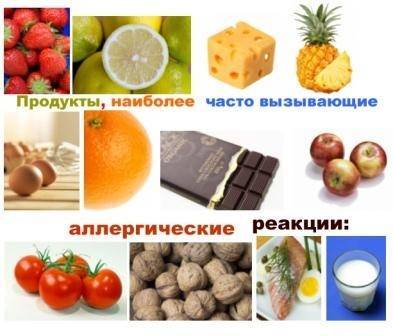
There are 2 types of such a diet: classic and alternative.
As part of the first option, the mother’s menu for the breastfeeding period should consist of:
- fermented milk products;
- soups based only on cereals and vegetables;
- boiled veal, chicken, turkey;
- rye bread;
- berries, vegetables, green or white fruits;
- ghee or vegetable oil;
- fruit decoctions;
- tea;
- fruit drinks without sugar.
Supporters of the alternative approach are of the opinion that a nursing mother should stick to her usual diet, but carefully monitor the baby’s reaction. Frequent allergy triggers are eggs and milk, but the amount of nutrients in them does not allow you to completely abandon these products.
Therefore it is important:
- boil eggs for at least 10 minutes;
- ferment milk to make porridge.
Restrictions on an alternative type of hypoallergenic diet:
- carbonated drinks;
- dishes from fast food restaurants;
- whole cow's milk.
2 or 3 times a week you are allowed to eat:
- fish;
- eggs;
- boiled sausage and quality sausages;
- red and orange berries, vegetables, fruits;
- cabbage and grapes;
- legumes;
- baking;
- sweets.
Contraindications and safety measures
Carrots do not cause side effects, but their improper use during breastfeeding in some cases leads to complications. At a dosage of up to 1.5 kg per week, the mother's skin may turn a pronounced yellow color.
Overeating vegetables negatively affects the quality of milk, which is why babies do not want to breastfeed. To avoid such difficulties, it is important to adhere to the rules for eating root vegetables recommended by pediatricians.
Can carrots harm a baby?
Possible harm to the child from eating carrots by the mother during breastfeeding is expressed in the following:
- the occurrence of an allergic reaction, indicated by symptoms: rash, red eyes, runny nose, swelling of the face, indigestion;
- the appearance of colic due to the increased fiber content in the vegetable.
Mushrooms, fish and meat
Can a nursing mother eat mushrooms?
Mushrooms are difficult to digest and their use is strictly contraindicated for young children. After the mother eats mushrooms, the baby may have an allergy from breast milk and tummy problems.
Can a nursing mother eat meat?
You can eat lean boiled meat. It is better to avoid fried meat while breastfeeding. Steamed cutlets and meatballs, beef, turkey and lean pork are healthy.
Can a nursing mother eat fish?
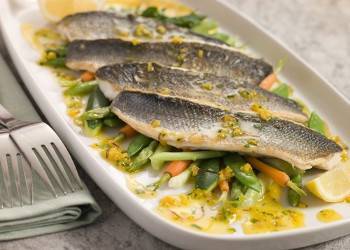
Red fish is very healthy. It can be consumed boiled, baked or stewed.
Salted fish can cause digestive upset in a baby, so it is not advisable to eat it.
Dry and dried fish should not be eaten by nursing mothers. It can cause colic, diarrhea or constipation, allergies, and nervousness in the baby. What types of fish and in what form can be consumed during breastfeeding are described in this review.
A nursing mother should not eat sushi, exotic seafood, or shrimp. They can cause allergies in a child and infection with worms.
Can a nursing mother have liver?
The liver supplies the body with well-absorbed iron, complete proteins, and many vitamins necessary for the body. Beef liver is especially useful. It has a delicate taste without bitterness and has less fat content than other types of liver.
Can a nursing mother have chicken liver?
Its use promotes the speedy recovery of the female body after childbirth due to its high content of beneficial nutrients.
Sample menu for a week by day
At first, it’s best not to experiment with food recipes. It is recommended to consume vegetables and fruits only after heat treatment. After strengthening the child’s digestive system, a woman can create a specific menu for the week that she can stick to, for example:
- Monday
- Breakfast – buckwheat boiled in milk, steamed vegetables, fermented baked milk;
- Lunch – vegetarian soup, a piece of boiled fish, dry cookies, weak tea;
- Afternoon snack – cottage cheese with dried fruits, green tea;
- Dinner – boiled potatoes, steamed piece of chicken breast, kefir.
- Tuesday
- Breakfast - wheat porridge with bran bread, kefir, drying;
- Lunch – light fish soup, baked rabbit meat, tea, dried fruits;
- Afternoon snack – fermented baked milk, baked apple;
- Dinner – baked potatoes with beef, dried fruit compote, cottage cheese.
- Wednesday
- Breakfast – a few boiled eggs, steamed broccoli, cheese, tea;
- Lunch – soup with recycled meat broth, stewed chicken cutlet, banana, tea;
- Afternoon snack – light oatmeal cookies, kefir;
- Dinner – lean pork stew, boiled potatoes, baked apple;
- Thursday
- Breakfast – cottage cheese casserole, compote;
- Lunch – stewed vegetable stew with chicken and potatoes, rye bread, tea;
- Afternoon snack – low-fat yogurt;
- Dinner - durum wheat pasta, boiled rabbit meat, low-fat milk.
- Friday
- Breakfast – cottage cheese with dried fruits, grated apple;
- Lunch – chicken baked with vegetables, boiled potatoes, compote;
- Afternoon snack – yogurt, banana;
- Dinner – corn porridge, a small piece of cheese, kefir.
- Saturday
- Breakfast – oven-baked cheesecakes, kefir;
- Lunch – vegetable stew, boiled buckwheat porridge, tea;
- Afternoon snack – baked apple, kefir;
- Dinner – baked fish with zucchini, banana, tea.
- Sunday
- Breakfast - a few boiled eggs, a piece of cheese, dried bread, tea;
- Lunch – fish soup, peeled apple, compote;
- Afternoon snack – oven-baked cheesecakes, tea;
- Dinner - rabbit stew with potatoes, oatmeal cookies, kefir.
What a nursing mother can eat in the first month is a controversial issue and largely depends on the child himself, the course of pregnancy, and childbirth. Before eating new foods, you should consult your doctor. It will help you create a menu correctly, especially for the first time, when the baby’s digestive system is still too weak.
Fruits on the menu
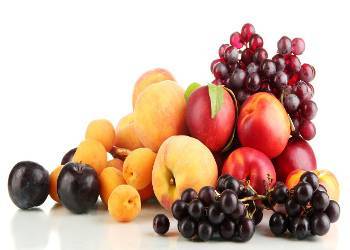
Red fruits most often cause an allergic reaction
What fruits can a nursing mother eat? Fruits are rich in vitamins and microelements that our body needs for health. As well as dried fruits, for example prunes.
The high fiber content in the peel of some fruits can cause colic in a baby. These fruits are best eaten peeled.
What fruits can a nursing mother of a newborn eat? It is not advisable to eat fresh fruit the first day after childbirth. You can only have a baked apple and bananas.
You should avoid oranges, grapefruits, tangerines and other fruits that can cause allergies during breastfeeding.
Can a nursing mother eat apricots?
Can apricots cause allergies? If a nursing mother does not have an individual intolerance to this fruit, it cannot cause an allergy. Apricots can be eaten in small quantities. They will supply the body with potassium, which is beneficial for the heart.
Can a nursing mother have nectarines?
Nectarines are the same peaches only with smooth skin. Despite their great taste and undoubted benefits, it is better to refrain from consuming them while breastfeeding, as they can cause allergies.
Can a nursing mother eat apples?
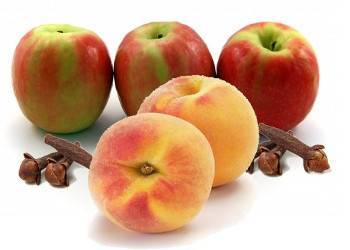
While apples can be eaten every day, eating too many peaches can cause diarrhea in your baby.
Apples contain coarse fiber in the peel, so they should be eaten without the peel while breastfeeding.
You may be allergic to red apples and should be consumed with caution. When introducing red apples, you should peel them
Allergy in a child - how does it manifest itself and what to do?
If the root vegetable is improperly consumed by the mother or incorrectly introduced into complementary foods, the baby may develop an allergic diathesis. Its symptoms:
- redness of the skin;
- red watery rashes localized on the baby’s cheeks;
- inflammation around the eyes, conjunctivitis;
- swelling of the gums.
At the first signs, you should remove the possible allergen from your diet to avoid anaphylactic shock and consult a doctor. After the tests, the allergist will identify the cause of the disease and prescribe medications.
Eating carrots serves as a preventive measure for diseases of the immune, digestive, and cardiovascular systems; its presence in the diet must be within acceptable limits. When breastfeeding, you should not give up root vegetables. Adjusting the diet of a nursing mother will help avoid overdose and allergies.
